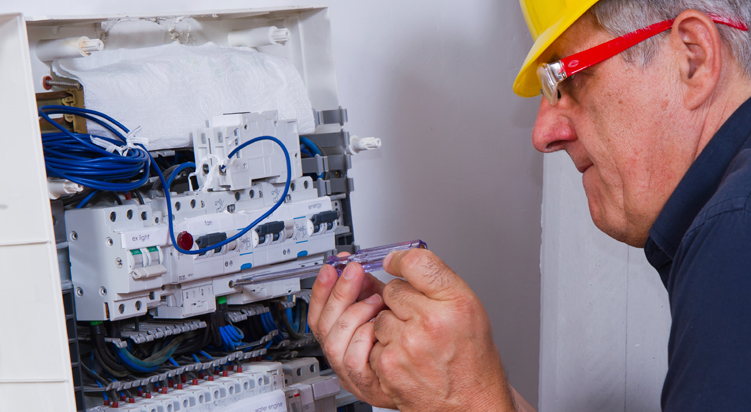Field Safety
Electrical Safety for Field Work:
Many electrical injuries could be prevented if people were alert to hazards.
- Stay aware by keeping focused on your job and don't let emotions like anger and frustration get in the way.

- It might take longer to keep your area clean and dry, or inspect cords for wear, but it's worth a few minutes to prevent shock or fire.
- Before using unfamiliar equipment, study instructions and get questions answered.
- Always use and maintain wiring, tools, and equipment correctly.Dirt and dampness increase the risk of shock. Keep your tools, work area, and storage space clean, and dry.
- When cleaning electrical equipment, be sure it's unplugged, and follow the manufacturer's cleaning instructions.
- Before you start work, check electric cords for wear.
- If outside or in a wet location, be sure tools and extension cords are suitable for outdoor use and circuits are equipped with GFCIs.
- Check to be sure cords are free of oil, heat, and corrosive chemicals.Do not yank, kink or bend cords.
- Store cords loosely coiled in a dry place.Never carry a tool by its cord.
- Be sure a tool is switched "off" before plugging or unplugging - this protects you and the next person who uses it.
- Watch out for energized areas when reaching into equipment.Shields, barriers, insulation and GFCIs protect you, so don't modify them just to get a job done faster.
- Learn and follow your company's lockout/tag-out procedures.
- If in doubt, ask a qualified electrical worker for help.
- Uncoil an extension cord fully before use and ensure that the amperage marked on it is adequate.
- Don't use equipment that gives off mild shocks, unusual heat, or odd smells. If in doubt, have it checked and repaired or replaced.
- Sweep up scraps and sawdust and store flammable liquids in approved containers.
- Don't use electrical equipment when flammable gases, vapors, liquids, dusts, or fibers are present.
PPE
Personal Protective Equipment (PPE)
Personal protective equipment is your first line of defense against shock and electrical burns. PPE could save your life.
- Keep boots, gloves and other gear in good condition — even a pinhole will let electricity through.
- Wear non-conductive protection on your head, face, hands, and feet.
- Use insulated tools or handling equipment, such as non-conductive ropes and protective shields.
- Dirt and dampness increase the risk of shock. Keep your PPE as clean and dry as possible
Office Safety
Electrical Safety for Offices
- Use only electrical equipment that is approved by a recognized testing laboratory, such as Underwriters Laboratories (UL).
- Keep power cords dry. The insulation won't withstand direct heat, repeated yanking, bending or wetness.
- Only pull on the plug head, never on the cord.
- Never carry an appliance by its cord.
- Don't run a cord under a rug or furniture. It may be damaged or overheat.
- Don't overload outlets.
- If you must use an extension cord temporarily, match the amperage or wattage limits marked on the cord and appliance to avoid a fire hazard.
- Check all cords for wear. Choose double-insulated or properly grounded tools for use outdoors or in wet areas.
- Always use outlets with Ground Fault Circuit Interrupters (GFCIs) to protect against serious shock.
